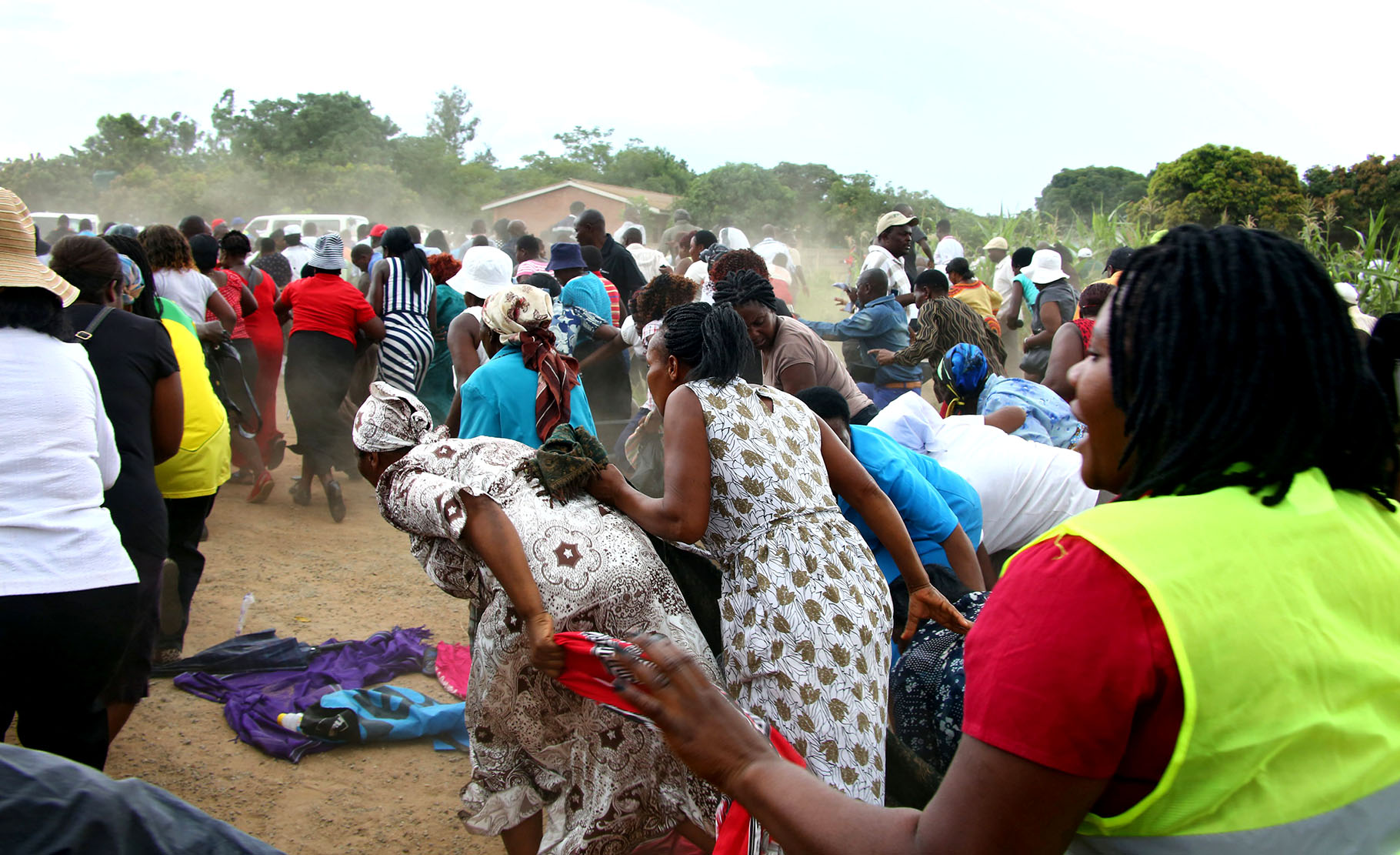Since gaining independence in 1980, Zimbabwe has grappled with an unaccountable and secretive security sector tarnished by decades of human rights violations. The new Zimbabwe Independent Complaints Commission provides a valuable opportunity to break a history of mistrust and antagonism between security forces and civil society.
Zimbabwe’s government has traditionally resisted calls for security sector reform, which would have clashed with its hardline stance against opposition political activists and human rights defenders. As a result, the army and police have — in defence of the ruling party — stifled freedoms of speech, assembly and political participation through arbitrary arrests, detention and the use of brute force.
These actions, together with the legacy of the 1983-87 Gukurahundi massacres and continued electoral violence since 2000, have deterred civil society from contributing to security sector governance.
Provisions exist in law to rectify the situation, but progress has been slow. Section 210 of Zimbabwe’s 2013 constitution provides for an independent mechanism to receive and investigate citizens’ complaints against misconduct or violations caused by the security services — including the police, defence forces, intelligence services, and prisons and correctional services.
This provision was, however, only activated in 2022, with the passing of the Zimbabwe Independent Complaints Commission Act. A five-member commission was sworn in two years later, enabling the Zimbabwe Independent Complaints Commission to start operating. The commission is led by Justice Webster Nicholas Chinamora, with other members drawn from the legal, medical and policing professions.
Ambitious
Chinamora is ambitious in his outlook for what the commission can achieve. He told The Herald in January that he wanted to “guide the commission in achieving security sector reform through fostering a partnership between the public and the security sector”. Effective collaboration between civil society organisations and security institutions is vital to achieve this goal.
But already, the commission’s independence is being questioned because Chinamora and another commissioner, Oliver Mandipaka, have strong links with the ruling party, the Zimbabwe African National Union – Patriotic Front (Zanu-PF). Those links could influence how they dispense their duties, which would erode public trust.
Chinamora has a tainted past in the justice system and is perceived as too close to President Emmerson Mnangagwa. Mandipaka is a former Member of Parliament elected under the Zanu-PF ticket.
As the commission begins operating publicly, it must proactively work on building relations with civil society organisations across the country to gain public trust and boost its impact. This could be achieved through joint public awareness-raising activities based on the commission’s mandate to enhance citizens’ access to, and use of, its services.
Opportunities must be created for dialogue between civil society and the security sector to share mutual concerns and approaches for oversight of security provision and management. Civil society organisations can help the Zimbabwe Independent Complaints Commission prevent misconduct and harm by security force members by helping to train police and soldiers on human rights and security sector accountability and transparency.
The commission could draw lessons from Kenya’s Independent Policing Oversight Authority and South Africa’s Independent Police Investigative Directorate, which have conducted joint awareness programmes and policy consultations with civil society organisations.
Mandate
It could also consider the African Union Policy Framework on Security Sector Reform, which provides a guide on how civil society organisations can engage in security sector governance. The policy identifies awareness raising, research and analysis, policy development and evaluation, and fostering dialogue and gender equality as ways to promote people-centred security and inclusive security governance. These roles for civil society clearly align with the commission’s mandate.
Despite the existence of laws, lessons and guidance on the issue, building productive relations with civil society in Zimbabwe won’t be easy. At present, security institutions prioritise national security over human security, and avoid engaging with civil society organisations. Security forces view civil society’s demand for accountability and better governance as a threat to the ruling regime and national security.
Civil society organisations also mistrust direct engagement with security institutions, fearing they might antagonise them through public media advocacy. As an oversight body, the commission could help prevent this mistrust by creating platforms for ongoing dialogue.
However, three major issues will make collaboration on security sector governance difficult. First, the commission’s primary functions are limited to reactive, remedial actions — investigating complaints of misconduct, inspecting detention facilities and recommending remedial actions against misconduct.
Expanding the commission’s mandate to include proactive, preventive responsibilities would require amending the Zimbabwe Independent Complaints Commission Act. That is unlikely, considering that the government is already suppressing its work, as evidenced by delays in getting the commission operational.
Second, the Private Voluntary Organisations Amendment Bill will inhibit civil society’s ability to function. If enacted into law, the bill will restrict civil society organisations’ access to communities and funding options and introduce strict registration and reporting requirements, especially for those working on human rights advocacy, peace and democracy building.
Under-resourced
Third, the Zimbabwe Independent Complaints Commission will probably be under-resourced, as happened with the National Peace and Reconciliation Commission and Zimbabwe Human Rights Commission, tasked with investigating human rights violations including by security forces. Under the provisional 2025 budget allocation, the commission received only ZiG80,476,000 (US$3,041,869) — way too little for its mandated work at this formative phase.
The commission was established to protect citizens from security services violations and harm by fostering transparency and accountability. Doing so would help transform Zimbabwe’s security sector governance, but whether the commission can achieve more than its limited reactive mandate seems doubtful. Collaborating with civil society would set it in the right direction. DM
Edknowledge Mandikwaza is a Senior Researcher, East and Southern Africa, at the Institute for Security Studies (ISS) Nairobi.
First published by ISS Today




